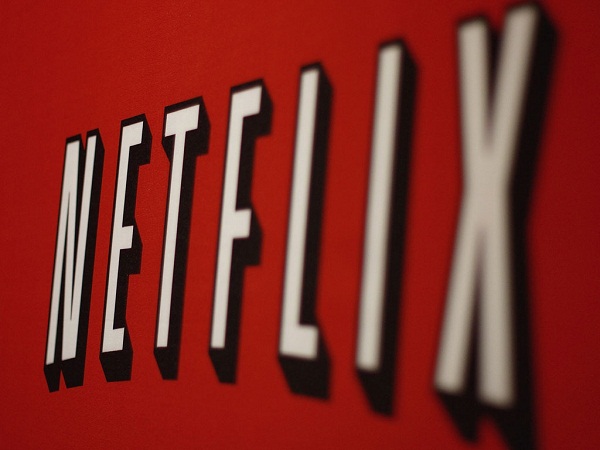Netflix Officially Petitions Against Comcast, TWC Merger
Netflix has officially asked the FCC to stop the merger between Comcast and Time Warner Cable.
By now we've all heard of the upcoming merger between Comcast and Time Warner Cable. Many feel that this merger should not happen, and now Netflix has officially filed a petition to the FCC demanding that it not allow Comcast and Time Warner Cable to proceed.
If TWC and Comcast merge, it would create the largest broadband cable provider in the US, controlling about two thirds of the market. Without a doubt, the company would start to look an awful lot like a monopoly, which is against the public's interest, as a company of that size with that much power can be used to abuse its position and its subscribers.
Comcast's defense against this argument is that it doesn't compete with Time Warner Cable anyway, because they do not operate in the same service areas. Of course, that doesn't change the sentiment of a single cable provider controlling two thirds of the cable broadband in the US into a good thing.
Naturally, Netflix likely also has its own reasons for not wanting the merger to go through. In a market where the ISPs are in a position to decide which traffic gets priority network access and which doesn't, the way that a company like Netflix can survive is by having its subscribers spread out over a various number of ISPs throughout the country. Aside from strongly supporting an open Internet via net neutrality, it is therefore certainly not in Netflix's interest to have the majority of its subscribers access its services through a provider that it doesn't get along with very well.
Just a couple of days ago Netflix also agreed to pay Time Warner Cable in order to improve the service to its subscribers over the TWC network. It did the same for AT&T a while back, as well as two other large cable broadband providers.
Netflix does not want to resort to these deals if possible, but for the time being they do appear to be a necessary evil for the time being. If the FCC decides to reclassify broadband access as a telecommunications service, it will disallow ISPs to prioritize certain data packets, which in turn makes it illegal for ISPs to charge content providers like Netflix for equal access to their networks.
So in the public's best interest, there are two decisions that the FCC needs to make: stop the merger, and reclassify broadband access as a telecommunications service. What we're curious about is why it is taking so long for this conclusion to be reached if the majority of the population is wondering why any thought has to be put into this decision at all.
Get Tom's Hardware's best news and in-depth reviews, straight to your inbox.
Follow Niels Broekhuijsen @NBroekhuijsen. Follow us @tomshardware, on Facebook and on Google+.
Niels Broekhuijsen is a Contributing Writer for Tom's Hardware US. He reviews cases, water cooling and pc builds.
-
house70 These companies (esp. Comcast) are already acting as monopolies in their service areas. Even in cities that have 2 or more providers available, the territorial division reminds one of the gang-controlled streets in the past, careful not to step on other toes.Reply
Not only this merger should not happen, but major monopolistic companies should be divided.
-
dovah-chan Welcome to the Southeast. Charter or AT&T. Both have; poor customer support like every other major corporate ISP, pain in the neck throttling, and overall gimmicky marketing strategies.Reply
Now please pick your poison. Instead of cash or credit it's Cable or DSL and instead of paper or plastic it's now Charter or AT&T. Welcome to America everyone. Enjoy your sub par internet service. -
InvalidError ReplyNot only this merger should not happen, but major monopolistic companies should be divided.
That makes no difference when individual baby-Bells stay within their respective territories.
Infrastructure is a natural monopoly: any given market can only support two, maybe three economically viable providers. With each provider only raking in 33-50% of possible revenues within an area but each having to eat nearly 100% of the costs regardless of market share, having two physical infrastructures to choose from more than doubles costs.
If you want to drastically lower costs while improving service quality, you need to aim for a fully converged utility model where all service providers go over a shared infrastructure to eliminate massive cost duplication in boilerplate access stuff. Many countries with affordable high-speed broadband use some form of co-owned infrastructure to minimize unnecessary duplication. -
Xivilain Good for Netflix. Someone has to stand up for the people, even if Netflix has its own interests in this merger. Comcast blackmailed Netflix with network throttling, and now Netflix is fighting back. Plain and simple.Reply -
skit75 I don't understand how it is OK that Netflix has to pay an ISP to "fix" already established connections that are already being payed for on both sides(Netflix on the upload side and subscribers on the download side). How is that TWC and Comcast subscribers are not fighting this fight? Understandably not all of that base are also Netflix subscribers but those who are should be blasting their elected representatives and the FCC.Reply -
wildkitten ReplyGood for Netflix. Someone has to stand up for the people, even if Netflix has its own interests in this merger. Comcast blackmailed Netflix with network throttling, and now Netflix is fighting back. Plain and simple.
That's actually an out and out lie. Comcast is the only ISP operating under the old net neutrality rules due to it's buyout of NBC (the one merger that should have been disallowed) and is monitored by it. That means they did not throttle Netflix.
Netflix has in just a few years gone from a DVD mail service to being responsible for a full third of all internet traffic during prime hours. It's the congestion they caused that have resulted in the slowdown because the peering arrangements can not keep up. Additionally, Netflix isn't being "blackmailed", because they are not paying extra, they merely shifted who they paid to have their content delivered to the ISP from the tier 1 providers. Many also believe this has saved Netflix money and they also can get something from being directly connected to the ISP that they could not get otherwise, a quality of service agreement. -
wildkitten ReplyI don't understand how it is OK that Netflix has to pay an ISP to "fix" already established connections that are already being payed for on both sides(Netflix on the upload side and subscribers on the download side). How is that TWC and Comcast subscribers are not fighting this fight? Understandably not all of that base are also Netflix subscribers but those who are should be blasting their elected representatives and the FCC.
Why would it be fought? No costs have gone up for the consumer and costs did not go up for Netflix. They are not paying extra for these interconnect deals, they merely changed who they were paying. In fact, it's likely they are paying less and can get a quality of service agreement because of that direct connection that they can not get with an ISP they don't have a direct connection with, which means a guaranteed level of service for those consumers on those ISP's that have the direct connection. -
christinebcw These Big 3 companies have had monopoly powers in their districts for a long time. Congress' 2003 sanctification only gave them more. Netflix shouldn't be the one complaining - it should be all consumers. Of course, that doesn't matter to Congress - they get their kickbac - er, "rebates" and "campaign contributions" anyway.Reply -
sykozis ReplySo in the public's best interest, there are two decisions that the FCC needs to make: stop the merger, and reclassify broadband access as a telecommunications service. What we're curious about is why it is taking so long for this conclusion to be reached if the majority of the population is wondering why any thought has to be put into this decision at all.
Niels, the reason the FCC is taking so long to come to such a conclusion is the simple fact that it's against the FCC Chairman's best interest to come to such conclusion. What is good for the cable companies and the cable ISPs, is good for the FCC Chairman. What's good for the consumer, is bad for the FCC Chairman. In the US, it's no longer about doing the right thing, just because it's the right thing to do. It's all about money and unfortunately, he who has the most, wins when it comes to dealing with the government. -
wildkitten ReplySo in the public's best interest, there are two decisions that the FCC needs to make: stop the merger, and reclassify broadband access as a telecommunications service. What we're curious about is why it is taking so long for this conclusion to be reached if the majority of the population is wondering why any thought has to be put into this decision at all.
Niels, the reason the FCC is taking so long to come to such a conclusion is the simple fact that it's against the FCC Chairman's best interest to come to such conclusion. What is good for the cable companies and the cable ISPs, is good for the FCC Chairman. What's good for the consumer, is bad for the FCC Chairman. In the US, it's no longer about doing the right thing, just because it's the right thing to do. It's all about money and unfortunately, he who has the most, wins when it comes to dealing with the government.
I completely agree that monopolies are a bad thing, however, Comcast buying TWC isn't going to be bad for a single person. TWC wants out. If the merger is not allowed, TWC isn't magically going to decide they want to be in business, they will just let their operations stagnate to the detriment of the consumers they serve until they find a buyer.
There is not one customer that Comcast and TWC has in common. No one can switch from one to the other because they exist in completely different markets. In fact Comcast won't even be able to assume all of TWC customer base because it would go over the 30% cap cable companies have. Some of TWC's areas will go to Charter instead. This also means Comcast can never grow again as they will be at that cap.
The simple truth is, this merger just doesn't matter because local governments never allowed true cable competition to begin with in the late 70's, early 80's when cable was growing. The real merger that should never have been allowed to happen was Comcast's purchase of NBC as that made a content carrier be a content creator as well which put them in a serious conflict of interest.


